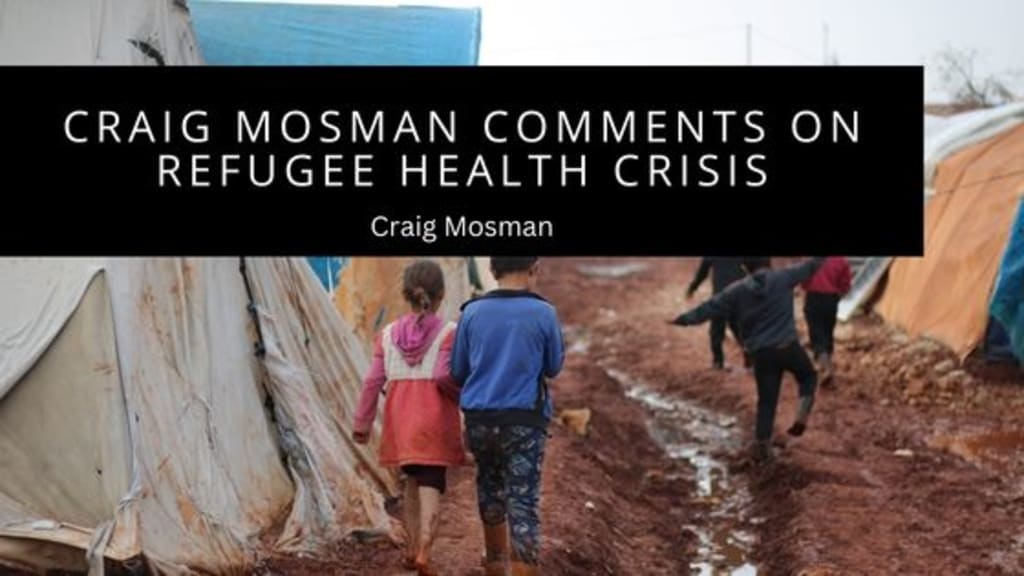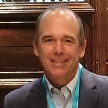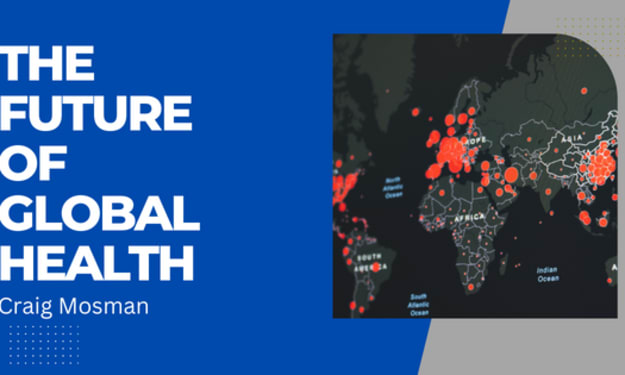Craig Mosman Comments on Refugee Health Crisis
On December 22, 2022, Craig Mosman of Idaho commented in a written article published online regarding the global refugee health crisis and potential solutions.

On December 22, 2022, Craig Mosman of Idaho commented in a written article published online regarding the global refugee health crisis and potential solutions. Mosman has spent the past 20 years investing in global healthcare and health innovation.
As 2022 recently came to a close, the number of forcibly displaced refugees globally exceeds 90 million. Roughly half of that number are children. That is a population greater than the total population in countries such as Iran, Turkey, the U.K., Germany, or Thailand. An estimated 9-11 million people currently are living in refugee camps.
With excessive drama typical of the US, if you relied on US news reports, you would be forgiven for believing that the refugee “crisis” was at the US border. However, Turkey has long been the country with the greatest number of displaced migrants, hosting roughly 15% of the world’s migrants. The East and Horn of Africa and the Great Lakes region hosted nearly 5 million African refugees at the end of 2021. More than 1.3 million Rohingya refugees were displaced from Myanmar to Bangladesh. The truth is, according to the WHO, low and middle-income countries host 85% of all refugees.
Both displaced refugees living in refugee camps and those who are living outside of refugee camps but displaced from their homes present important and unique health challenges.
Rapid Testing is Key: Whether within camps or migrating to another location, the key to providing treatment to refugees is that any diagnostic system has to be rapid. Without that, the patient is likely lost or has moved on to a different location. Rapid means a test that can accurately provide a diagnostic result within 15 minutes. That may not be the perfect test that someone would conduct in a well-appointed Western hospital or laboratory.
“The perfect is the enemy of the good,” although reportedly first uttered by Voltaire, was frequently and effectively used by global health expert Dr. Roger Breeze in the field of public health. What Dr. Breeze often meant was that in global public health, we can either wait years for the perfectly accurate test, which can be run by anyone, anywhere, or we can implement technology that may be imperfect but is available. Eventually, it may be possible that PCR, the gold standard of laboratory testing, will be available in remote locations like refugee camps. The good is available now. Not perfectly accurate like PCR, such rapid tests provide medically actionable results.
Clean Water and Waste: Inadequate clean water and sanitation are one of the greatest health challenges to refugees. In one study, researchers noted: “Poor sanitation may lead to diarrheal deaths, the spread of tropical diseases and malnutrition, among many other health impacts. Sanitation-related diarrheal symptoms globally produce a high death toll of 432,000 annually; including the death of 297,000 children aged under five years (WHO 2019b)” https://iwaponline.com/washdev/article/12/8/587/89424/Exploring-waste-and-sanitation-borne-hazards-in
Simple testing without electricity, heating, or cooling: Similar to the issues discussed under rapid testing, by the very nature of refugee camps and the mobility of refugee life, the testing systems used in refugee camps and with the refugee populations, the entire testing systems must be capable of operating without electricity, without cooling, and without heating. What does that mean? First, it means a method of processing tissue or blood or waste, whatever the source of the sample, that extracts DNA and can be done without electricity. Second, the testing system itself must be isothermal, or as Seek Labs refers to it, conducting without heat, agnostic to the temperature where the test is being conducted. Third, the reagents must either be capable of being reliably stored in a liquid state without cooling or lyophilized.
The modern reality is that the refugee population is significant. Until we are able to correct the underlying causes of people becoming refugees, we need to be realistic that this is a significant, often mobile population with substantial health issues.
About the Creator
Craig Mosman
At the biotechnology firm, Seek Labs, which has offices the U.S, and does business globally, Craig Mosman works as the Vice President of Business Development. Learn more by visiting his website and socials.
Enjoyed the story? Support the Creator.
Subscribe for free to receive all their stories in your feed. You could also pledge your support or give them a one-off tip, letting them know you appreciate their work.






Comments
There are no comments for this story
Be the first to respond and start the conversation.